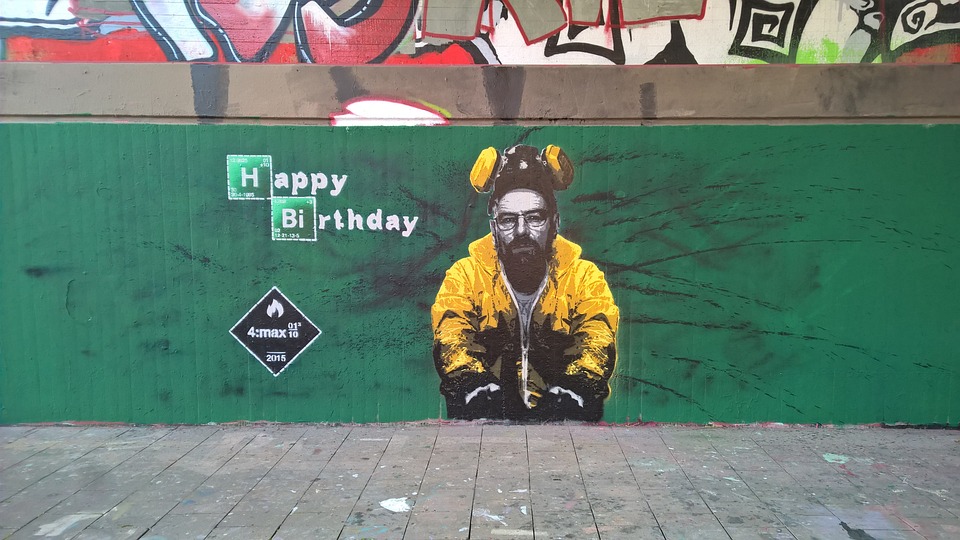#Breaking #Bad #GameChanger #Television #History
[ad_1]
Breaking Bad: What Made it a Game-Changer in Television History
Breaking Bad, a television series that premiered in 2008, quickly became a cultural phenomenon and is often regarded as one of the greatest television shows of all time. Created by Vince Gilligan, Breaking Bad follows the story of Walter White, a high school chemistry teacher who turns to cooking and selling methamphetamine after being diagnosed with terminal lung cancer. The show’s incredible storytelling, complex characters, and intense drama set it apart from other TV series and made it a game-changer in television history. In this article, we will explore the reasons why Breaking Bad had such a significant impact on the television industry and how it continues to influence the medium today.
The Rise of Anti-Heroes
One of the most significant contributions of Breaking Bad to television was its portrayal of an anti-hero as the main character. Walter White, played by Bryan Cranston, starts off as a sympathetic character who turns to a life of crime out of desperation to provide for his family. However, as the series progresses, Walter’s moral compass begins to erode, and he becomes more ruthless and manipulative. This transformation of a protagonist into an antagonist was groundbreaking for television and paved the way for other shows to explore complex and morally ambiguous characters.
Cinematic Visuals and Storytelling
Breaking Bad’s visual style and storytelling techniques also set it apart from other TV series of its time. The show employed a unique blend of dark humor, intense action, and gripping suspense, all of which were complemented by stunning cinematography and creative editing. The use of wide shots, extreme close-ups, and time-lapse sequences added a cinematic quality to the show that was unprecedented in television. This attention to detail and commitment to visual storytelling raised the bar for what audiences could expect from a TV series and sparked a new wave of cinematic television.
Moral Ambiguity and Ethical Dilemmas
Breaking Bad was not just a crime drama; it was a deep exploration of morality, ethics, and the consequences of one’s actions. The show forced viewers to confront uncomfortable questions about right and wrong and blurred the lines between good and evil. The ethical dilemmas faced by Walter White and other characters resonated with audiences and sparked intense debate and discussion about the nature of morality. This willingness to tackle complex and uncomfortable subject matter set Breaking Bad apart from traditional network television and made it a game-changer in the way TV shows approached storytelling.
Influence on Television Industry
Breaking Bad’s impact on the television industry cannot be overstated. The show’s critical acclaim and dedicated fan base paved the way for a new era of television in which complex characters and morally ambiguous stories became the norm rather than the exception. It also influenced other creators and showrunners to push the boundaries of what could be achieved within the medium of television. Breaking Bad’s success opened the doors for shows like Better Call Saul, Fargo, and True Detective, all of which continue to explore the same themes and narrative techniques that made Breaking Bad so revolutionary.
Legacy and Enduring Impact
Even years after its conclusion, Breaking Bad continues to leave a lasting legacy on the television industry. The show’s influence can be seen in the rise of streaming platforms and the increasing demand for high-quality, serialized storytelling. It also inspired a new generation of filmmakers and writers to pursue careers in television and strive for the same level of excellence that made Breaking Bad a timeless classic. The show’s impact on popular culture is undeniable, and its enduring legacy will continue to shape the future of television for years to come.
Summary
Breaking Bad, a television series created by Vince Gilligan, broke new ground in the television industry. The show’s portrayal of an anti-hero as the main character, its cinematic visuals and storytelling, its exploration of moral ambiguity and ethical dilemmas, and its lasting influence on the television industry are just a few reasons why Breaking Bad is considered a game-changer in television history. Its impact continues to be felt to this day, and its legacy is firmly entrenched in the annals of television history.
FAQs
Q: What awards did Breaking Bad win?
A: Breaking Bad won numerous awards, including 16 Primetime Emmy Awards and two Golden Globe Awards.
Q: What actors starred in Breaking Bad?
A: The main cast of Breaking Bad included Bryan Cranston, Aaron Paul, Anna Gunn, Dean Norris, Betsy Brandt, RJ Mitte, Bob Odenkirk, and Giancarlo Esposito.
Q: What is the legacy of Breaking Bad?
A: Breaking Bad’s legacy is its enduring impact on the television industry and popular culture, its influence on the rise of anti-heroes in television, and its lasting influence on serialized storytelling and visual storytelling in television.
1706745778
[ad_2]
